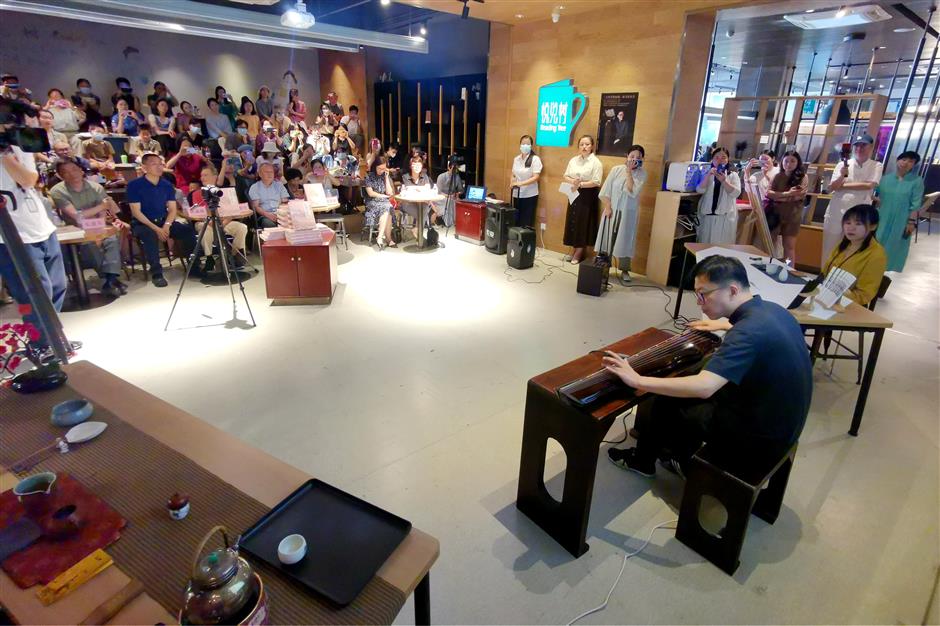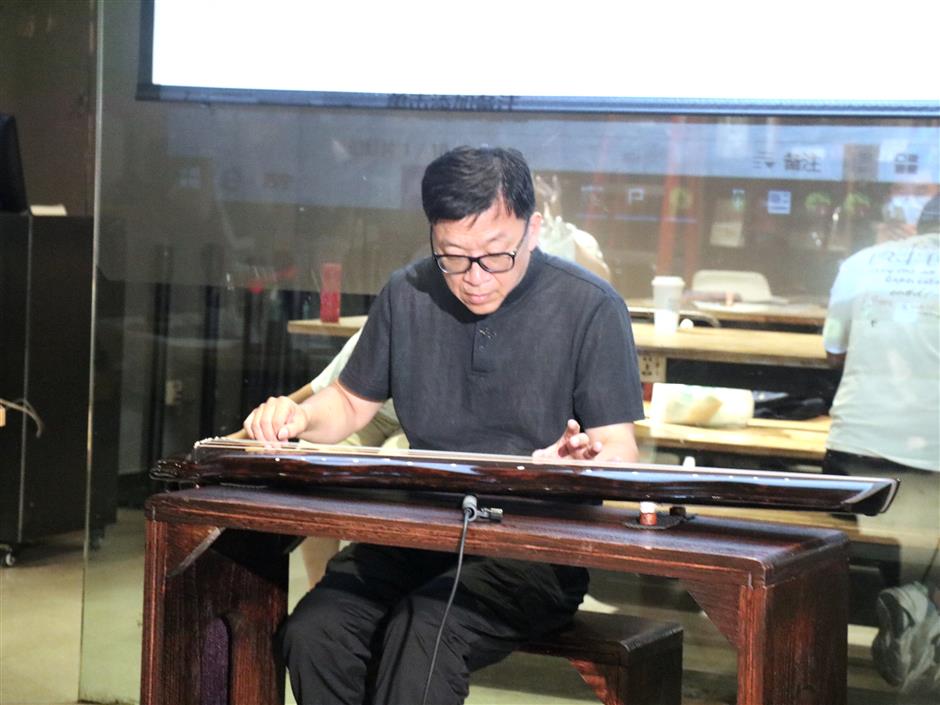Guqin master keeps the ancient musical magic alive
For years, master Xu Junyue has spent a lot of effort in reviving guqin, a stringed instrument, in China and compiling elementary textbooks on the art.
His new book "New Compositions of Tianfeng Guqin Notations" debuted last week in Hangzhou.
In ancient China, guqin, a plucked, seven-stringed zither-like instrument, was popular among literati. So sometimes it is called the "father of Chinese music" and the "instrument of the sages." Confucius was a prominent guqin player in his day.
Xu Yuanbai, Xu Kuanghua and Xu Junyue represent three generations of the Zhejiang school in modern times. And Hangzhou is their family home.
Today, only Xu Junyue is living, and he is the director of the West Lake Guqin Society.
"This book was developed on the basis of my grandfather's book 'Tianfeng Guqin Notations'," he said. "I updated the compositions and added some manuscripts. It is a work of several generations, and I hope to revive the Zhejiang school."
Except for the guqin notations created by Xu Yuanbai and his apprentices, the book also contains 23 new compositions from Xu Junyue.

Xu Junyue, a guqin master, demonstrates his skills on the seven-stringed instrument at the West Lake Guqin Society.
Since the guqin culture is considered profound, not many ordinary composers dare to make guqin music, and most guqin players don't know how to compose it, which halted the development in modern days.
Written guqin music does not directly say what notes should be played. Instead, it was written in a tablature detailing tuning, finger positions and stroke technique, thus comprising a step-by-step method and description of how to play a piece.
During the Song Dynasty (960-1279), playing the guqin was common for scholars, along with flower arrangement, painting and burning incense.
Guqin is famous for the slow, lingering and ethereal quality of its music. The ancient literati played the instrument for reflection and self-cultivation.
To this day, it is considered an instrument of subtlety and refinement.
Over the centuries, many schools developed in various geographic regions with different styles of playing.
Of all the schools, the Zhejiang school of the Southern Song Dynasty (1127-1279) is considered the oldest. It is famous for the elegance of its melodies and technique.
However, the art of guqin declined during the Qing Dynasty (1644-1911), and since then, there are few new compositions.

Xu Junyue, a guqin master, demonstrates his skills on the seven-stringed instrument at the West Lake Guqin Society.
















